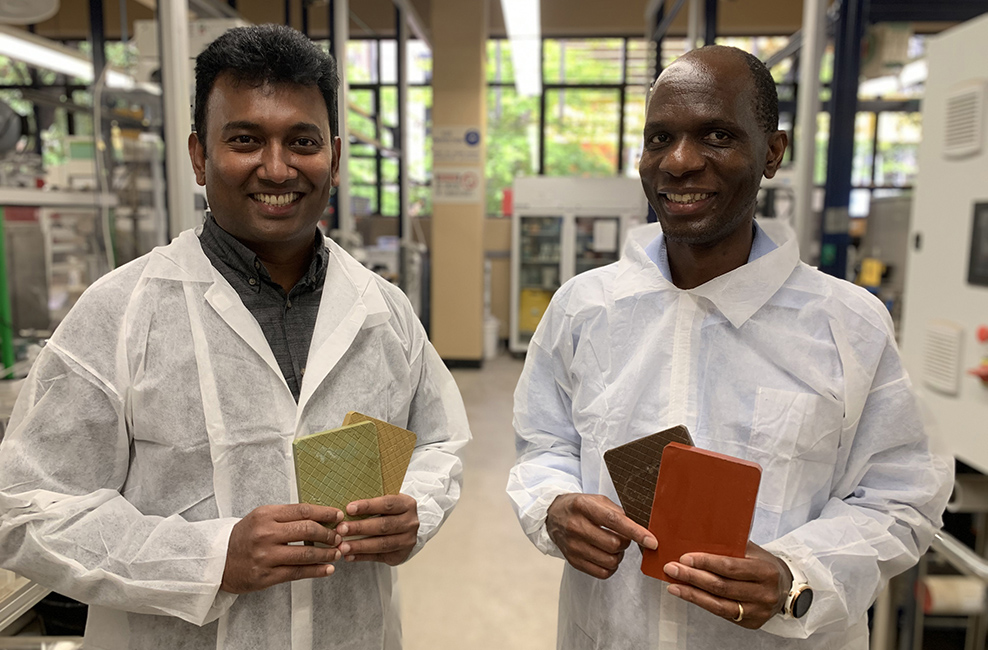Engineers have developed new fire-safe building claddings using recycled glass, creating a promising circular-economy solution to address a major waste stream.
The RMIT University team worked with materials technology company Livefield to produce the composite cladding, which they say is cheap, structurally robust and fire-resistant.
Lead researcher Associate Professor Dilan Robert said using recovered glass waste as an alternative cladding material could one day help reduce the amount of glass that goes to landfill. Globally, about 130 million tonnes of glass are produced each year, but only 21% of that is recycled glass.
The team’s non-combustible claddings use 83% recycled glass, along with relatively low amounts of plastic binders and fire-retardant additives.
Robert said their special blend of materials overcame the challenges with glass claddings, which were brittle and prone to fracture, as the plastic binders provided “improved toughness”.
“Experiments have proven that our claddings are fire-safe, water-resistant and cheap, and meet structural and environmentally sustainable requirements,” said Robert from RMIT’s School of Engineering.
The technology has met the key compliance requirement of claddings for non-combustibility (AS1530.1) set by Standards Australia.
The technology, which is now being patented by Livefield, has been trialled for large-scale manufacturing capability.
Panels using the team’s technology are installed at RMIT’s Bundoora campus to demonstrate the technology’s feasibility as building claddings.
“Livefield is keen to upscale the manufacturing process of the recycled class composite cladding, with further research support from RMIT,” Robert said.
Robert said testing of the new cladding materials for fire safety was an important focus of the research.
“Claddings play a key role in preventing the spread of fire, particularly in high-rise buildings,” Robert said. “Some of the most catastrophic building fires, like the 2017 Grenfell tower fire in London that led to many deaths and injuries, have been attributed to the poor fire-prevention performance of cladding materials.”
“These tragic events underscored the importance of understanding and designing fire-resistant cladding materials and systems for the building and construction sector,” Robert said.
This successful project is a major collaboration involving RMIT, Cooperative Research Centres Projects grants, the ARC Industrial Transformation Research Hub for Transformation of Reclaimed Waste Resources to Engineered Materials and Solutions for a Circular Economy (TREMS), Sustainability Victoria and other industry support.
Robert led the project with support from RMIT colleagues Dr Edwin Baez, Associate Professor Everson Kandare, Professor Sujeeva Setunge and Professor Kevin Zhang.
Pictured: RMIT University lead researcher Associate Professor Dilan Robert and Associate Professor Everson Kandare with samples of the cladding made mostly from recycled glass.

